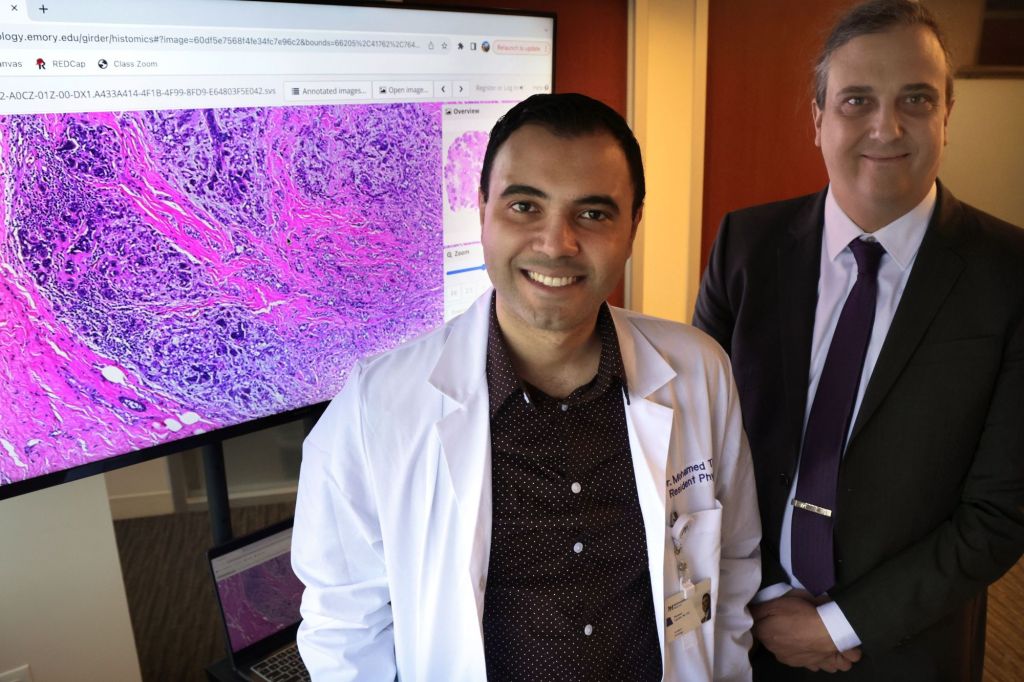CHICAGO — Mohamed Tageldin has worked at the intersection of artificial intelligence and pathology, the study and diagnosis of diseases, for six years.
Tageldin, a resident physician at Northwestern University’s McGaw Medical Center, is part of a team of researchers that has developed an artificial intelligence model to more precisely predict long-term outcomes for breast cancer patients.
At a time when some industries are shying away from and questioning the use of AI in daily work, those in the medical field are leaning into the support the technology can provide to doctors.
“There’s almost too much excitement,” Tageldin said of attitudes toward AI in the medical field.
The team hopes the new model, designed specifically for breast cancer, will aid patients with more personalized recommendations and agency in their choice of treatment plans. It may also spare patients unnecessary chemotherapy treatments, according to a report published in late November.
Researchers found that with current prognosis methods used by pathologists, some patients are placed into higher-risk categories when, in reality, the patients could undergo shorter and less intense treatment plans.
“For those people we recategorize, we could reduce the duration or intensity of their chemotherapy, and hopefully, achieve the same clinical outcome with less side effects,” said study co-author Lee Cooper.
Cooper, an associate professor of pathology at Northwestern University Feinberg School of Medicine, said the algorithm assesses patients differently from human pathologists and previous models by studying both cancerous and noncancerous cells — such as immune cells — in a prognosis.
Noncancerous cells can attack and inhibit cancer growth and provide shape around a tumor, which can lead to better long-term outcomes for a patient. But noncancerous cells are hard to analyze with the human eye, making it difficult for doctors to predict…
Read the full article here







